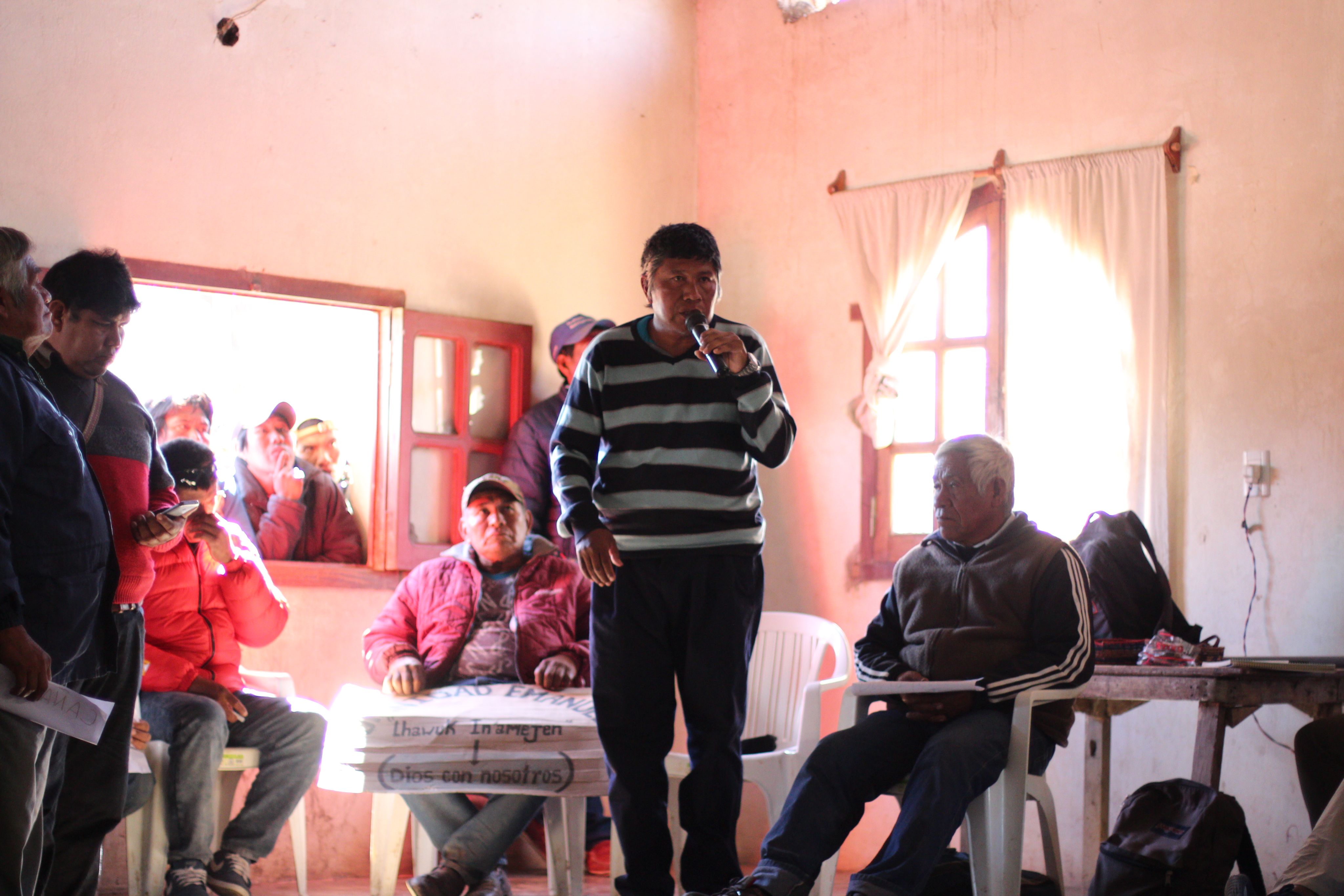Centro de Estudios Legales y Sociales (CELS)
Following a landmark ruling, Bertha Justice Partner CELS is working with the Lhaka Honhat Association and other communities that are trailblazing a route to defend land and cultural rights in Argentina and across the Americas.

In 2020, Bertha Justice Partner Centro de Estudios Legales y Sociales (CELS) and the Lhaka Honhat Association of Aboriginal Communities in the Salta province achieved a historic outcome: in a first-ever ruling, the Inter-American Court of Human Rights convicted Argentina of violating the Lhaka Honhat’s rights to a healthy environment, food, water and cultural identity. In an unprecedented move, the government was ordered to surrender a deed of ancestral territory to all the communities that are part of the Lhaka Honhat Association. Both aspects of this ruling are key to protecting communities and, in turn, the ecosystems they protect. As the Lhaka Honhat’s trailblazing ruling took place at an international level, it empowers Indigenous communities across the whole of the Americas. In the race against time to address the climate crisis, this is a powerful tool in the fight ahead.
Building on the success of the Lhaka Honhat case, María José Venancio – a Bertha Justice Fellow – and lawyers at CELS have been working with a community [referred to as Community A for security reasons] that is fighting eviction from ancestral lands in one of the poorest provinces of Argentina.
During 2020 and 2021, Greenpeace Argentina and local peasant leaders together documented that more than 9,000 hectares of forests in this province have been destroyed. Deforestation has caused biodiversity loss and the destruction of the homes and livelihoods of Indigenous communities. Community A, who protect the forest lands, have been facing violent evictions from the private sector since 2012, just after they put in a legal application for environmental protection.
The Lhaka Honhat judgment ordered Argentina to create a law of Indigenous communal property. During 2021, María José was able to use the right to property defined in the Lhaka Honhat case as part of Community A’s defense to suspend an eviction at the provincial level. The land ownership is disputed in various cases, so while eviction was physically halted, the eviction order itself is still in place. At the national level, a structural problem remains that Indigenous and peasant communities’ land ownership – including property rights – are in many cases not yet legally upheld. Even though the communities have a specific law that protects them, the judiciary has omitted these protections. On the contrary, it defends the interests of economic actors, giving way to violent evictions or threats of evictions. This is a legacy of pre-independence distribution of land deeds to colonial settler populations that excluded existing landowning Indigenous communities. In later years, there were no substantial agrarian reforms to rectify this.

María José explains: “This is not only about the economic productivity of the land. The land is tied to the communities’ identities and traditions, the way they organize food and water in line with the local environment. The land is their life, and their life is the land. This casework and advocacy is important to gain visibility and replace an out-of-date legal framework with what is needed.”
Recognizing this issue, the litigation is part of CELS’s campaign work alongside the National Peasant Indigenous Movement (MNCI). This movement strategically includes both Indigenous and non-Indigenous peasant communities united in a common cause for legal recognition in the face of structural exclusion and corporate-sector expansion into the homes, forestry and lands they protect. Since September 2020, 80 cases of land conflict have been reported. As part of the movement, environmental activists in three provinces are citing the Lhaka Honhat ruling in different environmental struggles related to mining, deforestation and evictions.
In the Lhaka Honhat case, the court instructed a timeline for implementation of the ruling to ensure systems are set up for access to water and food supplies as well as for the land-deed transfer. The CELS team is working with the Lhaka Honhat Association on the consultation processes for the timeline, which supports research for a national law of Indigenous communal property. CELS’ work on the Lhaka Honhat consultation will bolster María José’s work on Community A’s case to potentially have the state grant land-title deeds to them, leading to the removal of the eviction orders.
CELS is working with communities in two other provinces using the Lhaka Honhat ruling, and is part of discussions across the Americas on how to apply the judgment elsewhere. This work has created a ripple effect for other communities aiming to apply the Lhaka Honhat case across the whole of the Americas.
The combination of provincial, national and international work is pushing a strong agenda for communities and the ecosystems that we all depend upon to preserve the planet.
CREDITS
Photo 1: Meeting of Lhaka Honhat Council of Caciques with Inter-American Court staff. Judge Sierra Porto discusses the territory with a map of Lhaka Honhat land in the background. Photo: CELS
Photo 2: A Cacique (Caciques are Chiefs or head of group) speaking at the meeting where the Inter-American Court of Human Rights made a visit to the communities on May 17, 2019.
Photo 3: Meeting of Lhaka Honhat Council of Caciques with Inter-American Court staff, pictured in a meeting hall.Photo: CELS
Author: Shveta Shah, Bertha Justice Initiative Director
Editorial Consultant: Karen Frances Eng
This story was originally published in the Bertha Climate book and some of the information in this story may have changed since it was first published.



 Built with Shorthand
Built with Shorthand